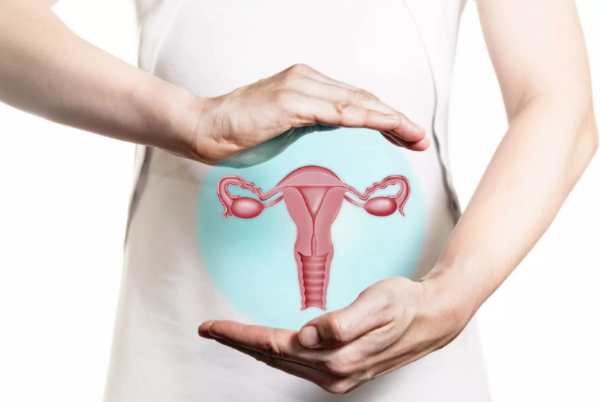Prostate cancer is a type of cancer that primarily affects men, but did you know that women can also be impacted by this disease? As a woman, I’ve always been curious about the potential connection between prostate cancer and the female population.
Can Women Get Prostate Cancer?
Prostate cancer is a term that typically brings men to mind, but it’s worth exploring whether women can be affected by this condition. While women do not have a prostate gland like men, they do have a small gland known as the Skene’s gland, sometimes referred to as the female prostate.
This gland is located near the urethra and shares some similarities with the male prostate, including the ability to produce prostate-specific antigen (PSA) and prostate-specific acid phosphatase (PSAP), markers commonly associated with prostate cancer.
In extremely rare cases, the Skene’s gland can develop cancer, leading to a condition that is sometimes called female prostate cancer. This type of cancer is exceedingly uncommon, and because it is so rare, there is limited research and awareness surrounding it. Symptoms might include urinary issues, pain during intercourse, or an abnormal growth in the urethral area, but these symptoms can also be associated with other more common conditions.
For women experiencing any concerning symptoms, it’s important to consult a healthcare provider for proper diagnosis and treatment. While the risk of prostate cancer in women is extremely low, understanding the role of the Skene’s gland helps shed light on this rare medical phenomenon.
What is the Prostate Gland?
The prostate gland is a small, walnut-sized organ located just below the bladder in men. It plays a crucial role in the male reproductive system by producing seminal fluid, which nourishes and transports sperm during ejaculation. The prostate surrounds the urethra, the tube through which urine exits the body, and its health is vital for urinary and sexual function.
As men age, the prostate can enlarge, leading to conditions like benign prostatic hyperplasia (BPH) or prostate cancer, which can impact urinary flow and overall health, making regular check-ups important for early detection and management.
Prostate Cancer in Women
Prostate Cancer in Men
Prostate cancer is the most common type of cancer in men, excluding skin cancer. It occurs when abnormal cells begin to grow and multiply within the prostate gland, potentially spreading to other parts of the body. Early detection and proper treatment are essential, as prostate cancer can be highly treatable in its early stages.
Understanding Female Prostate Cancer
While prostate cancer is primarily a male-dominant disease, the existence of female prostate cancer has been recognized and documented in the medical community. However, it is important to note that the incidence of this condition is exceptionally low, with only a few hundred cases reported worldwide.
Causes and Risk Factors of Prostate Cancer in Women
The exact causes of prostate cancer in women are not fully understood, but researchers have identified several potential risk factors:
Hormonal Imbalances : Hormonal changes, such as an imbalance between estrogen and androgen levels, may play a role in the development of female prostate cancer.
Genetic Factors :Certain genetic mutations or inherited genetic predispositions may increase the risk of prostate cancer in women.
Age :Similar to men, the risk of prostate cancer in women increases with age, with the majority of cases occurring in older women.
Exposure to Carcinogens : Environmental factors, such as exposure to certain chemicals or toxins, may contribute to the development of prostate cancer in women.
Symptoms and Diagnosis of Female Prostate Cancer
The symptoms of female prostate cancer can be similar to those experienced by men with the condition, but they may be more subtle and less specific. Common symptoms may include:

- Difficulty urinating
- Frequent urination
- Feeling of incomplete bladder emptying
- Pelvic pain or discomfort
- Blood in the urine or semen
Diagnosing female prostate cancer can be challenging, as it is a rare condition. Healthcare providers may use a combination of physical examinations, imaging tests (such as MRI or ultrasound), and biopsy procedures to confirm the diagnosis.
Treatment Options for Female Prostate Cancer
The treatment options for female prostate cancer are similar to those used for prostate cancer in men, but the approach may vary depending on the stage and severity of the disease. Potential treatment options include:
- Surgery: Surgical removal of the affected glands or tissues may be recommended in some cases.
- Radiation Therapy: External beam radiation therapy or brachytherapy (internal radiation therapy) can be used to target and destroy cancer cells.
- Hormonal Therapy: Medications that regulate hormone levels may be prescribed to slow the growth or spread of the cancer.
- Chemotherapy: In advanced cases, chemotherapy drugs may be used to kill cancer cells and prevent further spread.
Support and Resources for Women with Prostate Cancer
While female prostate cancer is a rare condition, there are resources and support available for women facing this diagnosis. Connecting with patient advocacy groups, joining online support communities, and working closely with healthcare providers can provide valuable emotional, informational, and practical support.
If you or a loved one are concerned about the possibility of prostate cancer, I encourage you to speak with a healthcare provider. Early detection and proper management are crucial, and there are resources available to help guide you through this journey. Remember, you are not alone, and there is support available.
Conclusion
In conclusion, while prostate cancer is primarily a disease that affects men, it is possible for women to develop a rare form of the condition known as female prostate cancer. Understanding the causes, symptoms, and treatment options for this condition is important, as it can help raise awareness and provide support for the small number of women who may be impacted by this disease.
By staying informed and advocating for our health, we can work towards improving outcomes and supporting those affected by this unique form of cancer.

